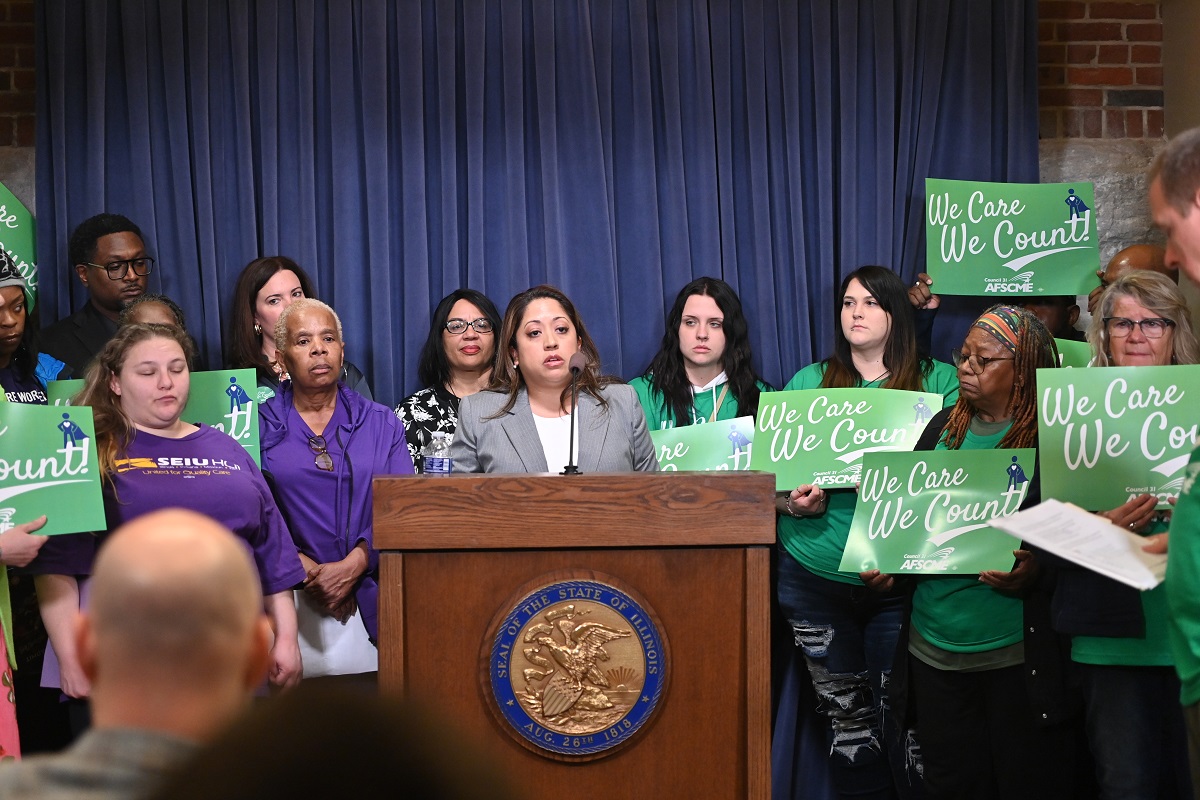 SPRINGFIELD – At a press conference on Wednesday, State Senator Celina Villanueva reaffirmed her commitment to strengthening Illinois care infrastructure by advancing legislation to improve compensation for Direct Support Professionals who provide critical daily care to individuals with intellectual and developmental disabilities.
SPRINGFIELD – At a press conference on Wednesday, State Senator Celina Villanueva reaffirmed her commitment to strengthening Illinois care infrastructure by advancing legislation to improve compensation for Direct Support Professionals who provide critical daily care to individuals with intellectual and developmental disabilities.
“Direct Support Professionals are the backbone of care for thousands of Illinois residents living with disabilities,” said Villanueva (D-Chicago). “Their wages should reflect the essential, often demanding work they do every day. This measure gives us the opportunity to move toward equity and dignity for this workforce.”
Under Senate Bill 1617, the Illinois Department of Human Services would be required to increase reimbursement rates for community agencies and residential programs that employ DSPs and other frontline staff. The measure aims to support a $2 per hour wage increase for DSPs by July 1, 2025, pending federal approval.
DSPs assist with daily living activities and community support for adults and children with intellectual and developmental disabilities. According to the American Federation of State, County and Municipal Employees, nearly half of Illinois’ DSPs rely on public assistance, with many earning just above minimum wage—despite playing an essential role in providing around-the-clock care in residential and day programs.
SB 1617 would also grant DHS and the Illinois Department of Healthcare and Family Services the authority to implement the wage increases efficiently.
The bill builds on past legislation, which provided for a $1/hour increase in DSP wages effective Jan. 1, 2025. Villanueva’s legislation goes further by ensuring that reimbursement rates align with a $2/hour wage increase, bringing DSP base wages closer to 150% of minimum wage, as recommended by advocates.
“Agencies should not be allowed to underpay workers just because reimbursement rates haven’t kept pace,” Villanueva said. “This measure helps ensure that wage increases reach the people actually doing the work.”
Senate Bill 1617 has been assigned to the Senate Appropriations – Health and Human Services Committee.













 © 2026 Illinois Senate Democratic Caucus
© 2026 Illinois Senate Democratic Caucus